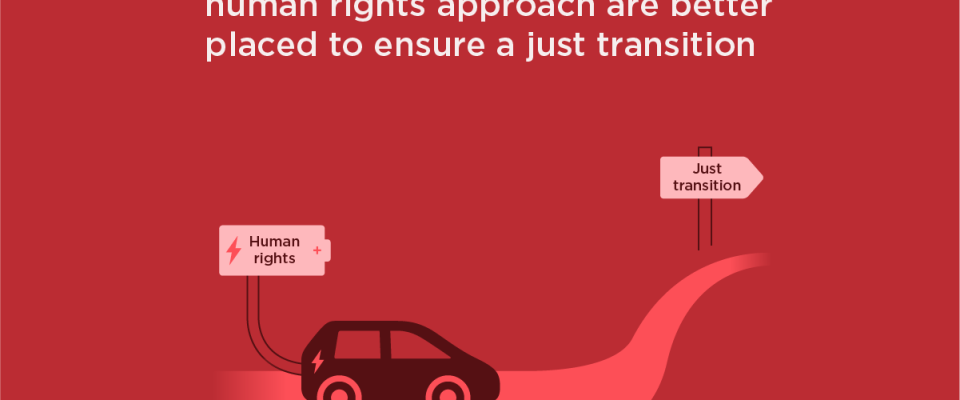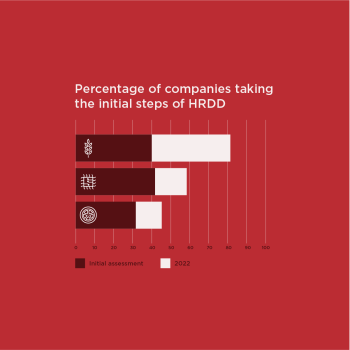Key finding
In the face of the climate crisis, companies with an effective human rights approach are better equipped to plan for a just transition

The need for business action to address climate change – one of the most serious systemic risks of our time – is irrefutable. Both the action and inaction of companies can lead to severe impacts on people. Insufficient action to halt climate change will affect the health, safety and livelihoods of millions around the globe. Meanwhile, effective action towards a low-carbon economy without a just transition strategy risks leaving millions of workers and communities stranded.
A human rights lens is fundamental to adequately identify and address such impacts. However, our evidence shows a persistent and concerning disconnect between climate and human rights issues in the case of most companies. In 2020, WBA compared the scores of the automotive companies assessed in the Climate and Energy Benchmark and the Corporate Human Rights Benchmark and found no correlation between a company’s relative performance in each benchmark. This year, we included an additional layer to the analysis: WBA’s 2021 Just Transition Assessment. This looks at how companies are managing the universal challenge of eliminating carbon emissions in a way that leaves no one behind.
Once again, we found no correlation between climate and human rights performance. Most companies that demonstrate they are taking action to address climate change, such as low-carbon transition plans and emissions reduction targets, disclose very little, if any, information about how they manage human rights, and vice versa.
However, we did find a clear positive correlation (0.8) between a company’s human rights score and its performance in 2021 our Just Transition Assessment. Eight out of the ten highest-scoring companies from the automotive sector in the Corporate Human Rights Benchmark – such as Mercedes-Benz Group, General Motors and Volkswagen – were also among the ten highest scoring on our just transition indicators. Conversely, eight out of the ten lowest-scoring companies in the Corporate Human Rights Benchmark were also among the lowest scoring on just transition.
These findings make sense: after all, just transition plans and actions are a concrete way in which businesses operationalise their responsibility to respect human rights in the face of the climate crisis. Our evidence shows that those companies with human rights policies and processes that align with the United Nations Guiding Principles are also better equipped to identify, assess and address the risks and impacts on people associated with their climate measures.
In 2021, we identified a similar trend in our study of companies’ response to the COVID-19 pandemic: in these times of unprecedented environmental, economic and social crisis, human rights due diligence processes make for more prepared companies, and more resilient workers and communities.
